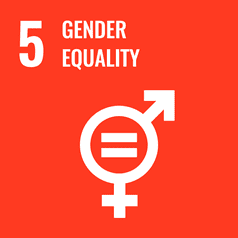

Goal 5:
Gender Equality
Policy for Women Applications and Entry
2024 marked another successful year for women's applications and entry into the University of Newcastle. This progress was underpinned by the University's commitment to equity, as outlined in the 2024 Student Equity & Social Justice Plan. Complementing this plan are several key policies and frameworks—including the Admissions Manual, Equity, Diversity & Inclusion (EDI) Policy, and Athena Swan / SAGE Athena Swan—which explicitly support and embed goals around women’s application, acceptance, and participation across the institution.
Here’s how they work together:
Policy framework & commitments
- The Student Equity & Social Justice (SESJ) Plan sets parity (including gender parity) as a core goal. It commits to having student representation (entry to graduation) reflect the diversity of the University’s regional population, covering pre‑access, acceptance, pathways, and participation. Evidence shows women average about 60% of student share under this policy.
- The Admissions Manual – Coursework and Enabling Programs mandates equitable access to entry pathways for all applicants. Some relevant provisions include recognition of prior learning, adjustment factors, enabling programs, and other schemes to ensure those from diverse backgrounds can access admissions on fair terms.
- The Equity, Diversity & Inclusion (EDI) Policy affirms a commitment to an inclusive environment where equity is not just equality but involves recognising disadvantage and tailoring support. Students (along with staff) are supported via access, accommodations, data collection / evaluation, and monitoring so that equity cohorts (including those experiencing gender-based discrimination) can participate fully. This policy was effective from the 10th of December 2024 and will be reviewed on the 10th of December 2027.
Athena Swan / SAGE Athena Swan
- The University also holds a SAGE Athena Swan Silver Accreditation, which is a gender equity framework. It monitors and evaluates progress in recruitment, retention, advancement, and participation of women and gender equity more broadly. Under this scheme:
- The University has identified barriers (for example in STEM fields, workload allocation, recruitment, support for carers) and established action plans to remove them.
- There are specific projects (e.g. intersectional analyses, targeted recruitment, support for career development) under the Vice‑Chancellor’s Athena Swan / Cygnet Awards Fund.
- They use data (quantitative + qualitative) to understand where women are underrepresented or face disadvantage, then embed interventions.
Our Commitment
Through these collaborative policies, we ensure that there is a clear institutional policy base ensuring women’s participation is addressed at all stages: from applying, entering, through to participating and completing (e.g. via the SESJ Plan + Admissions Manual). The EDI Policy supplies the framework of values, responsibilities, monitoring, and ensures accommodations / adjustments where needed. Athena Swan provides an external benchmark, action‑oriented oversight, and accountability, with concrete action plans, evaluation, and data collection to track performance.
Student Equity & Social Justice Plan
The University of Newcastle is proud to be recognised for its distinctive commitment to equity and excellence. This commitment is embedded within institutional strategies, practice, research, evaluation and pedagogy. It is ongoing as we continue to work toward our goal of parity of participation and to strengthen our impact for local and international communities. The Student Equity and Social Justice Plan supports and deepens the University’s lived values of equity, excellence, engagement and sustainability.
Read more
The University of Newcastle acknowledges the traditional custodians of the lands within our footprint areas: Awabakal, Darkinjung, Biripai, Worimi, Wonnarua, and Eora Nations. We also pay respect to the wisdom of our Elders past and present.